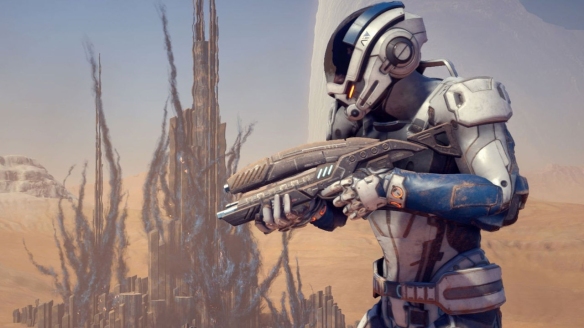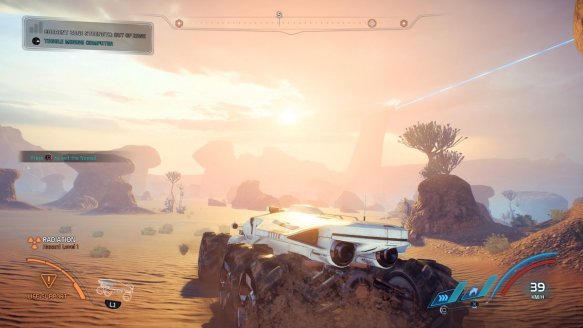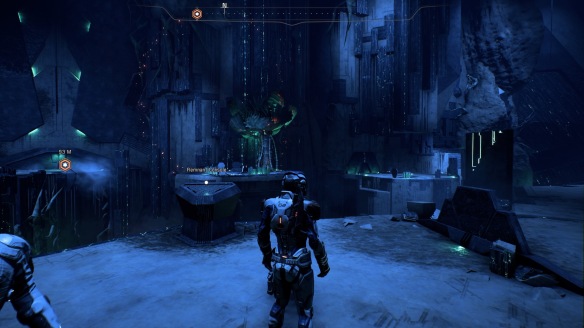In a game that has focused so much on atmosphere manipulation, it’s probably fitting that what I like best is the game’s atmosphere. (Maybe it’s an intentional connection by Bioware, a bit of high art in game development. I’m happy to give them the benefit of the doubt.)
The setting of Mass Effect: Andromeda is steeped in despair. It’s really haunting.

Mass Effect: Andromeda promotional image
I mentioned the other day that one of the moments I liked best at the beginning was the one that established the overwhelming desperation and hopelessness on the Nexus. The people there were trapped and running out of time, but they had no options. Society was breaking down; people were breaking down.
Even the first real side-quests, a murder investigation and a hunt for a saboteur, reinforced that quality of the setting. Bleak prospects and high anxiety had inspired one settler to murder another in a pyrrhic quest for survival at any cost. In the aftermath of a failed rebellion, powerlessness to escape leadership that couldn’t be trusted was transformed into self-destructive rage.
Enter my character, the ersatz Pathfinder. His tenure hadn’t started well—disaster, failure, tragedy—but he and his team were the last, the only chance anyone in Andromeda had for hope.
The Ghost Town
Finding hope meant diving into the mire and digging it out by main force. This is where the atmosphere became so important. Mass Effect: Andromeda is a game after all. I, the player, knew that my character was going to be able to succeed somehow, was going to beat the odds, do the impossible, triumph with swagger, or at least glory. Even in Halo: Reach, when players control a doomed character on a doomed planet where they went in knowing the ending, it was possible to succeed.
Mass Effect: Andromeda really needed to sell “isolated and disheartened” for it to work at all. It hit it out of the park.
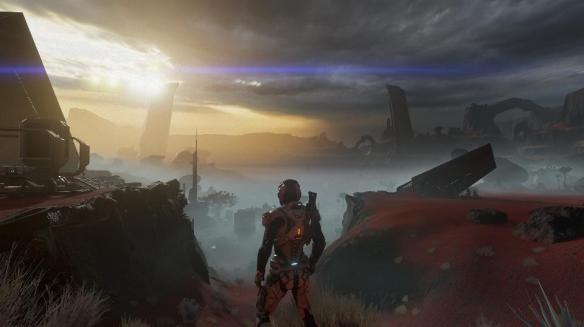
A screenshot from the PS4 version of Mass Effect: Andromeda
After the Nexus my character traveled to Eos, site of many failed colonies, a barren and hostile planet that seemed exactly like the suitable home only for ruins and corpses. Even the air tried to kill me. My only protection was speed or the confines of a dying shield umbrella. The whole world was littered with stories though.
Hopeful emails that trended slowly toward confusion and concern. Journals that start out with projects, but then become little more than discussions of obstacles, injuries, and death. Recordings of the colonists as tensions mounted and they argued about how to stay alive. Their corpses, left and lost two-million lightyears from home.
The game didn’t pull its punches. There was one quest a little bit later, after my character had started to show some promise in the hope restoration business, that poignantly brought my efforts into perspective. I found the equipment of a lost surveyor and decided to complete his task. He had set his equipment to play messages with each step however. It was already heartbreaking when it was just the voice of a child proud of his father, now missing, probably forever. Then each step added to the story. The son had been dying, had been left behind in the Milky Way, but promised to be content, knowing his father was safe “in the future.” What a future his father woke up in….
It’s brilliant. I really don’t want my character to let these people down. I’m invested in their plight.
Not much later my character left to track down more bodies for burial. It was the least I could do, but instead I found a mystery, maybe even glimmers of hope. Perhaps some had escaped? I tracked them across two systems, only to discover they’d been hunted by someone before, and escaped (if you can call it that) only by crippling their own ship in dangerous space. I found it drifting not far away, burned and spinning.
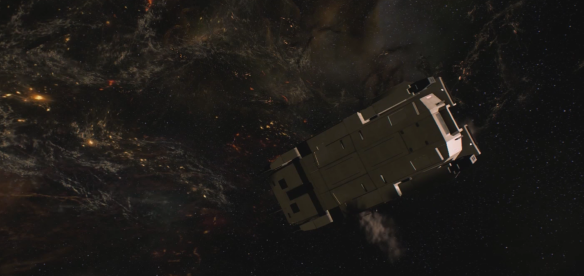
A screen shot of the PS4 version of Mass Effect: Andromeda
But there were survivors on board. My character exclaimed with joy. I was right there with him. It was the most satisfaction I’d ever felt at completing a side quest.
Mass Effect: Andromeda is an amazing game.


